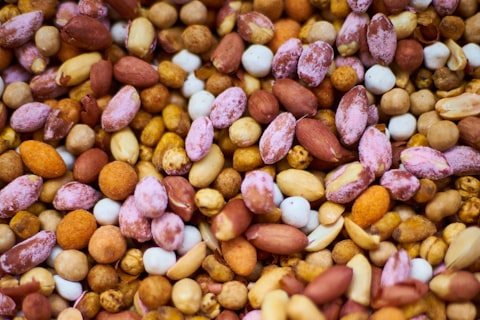Exploring the Vital Role of the Pancreas in Regulating the Human Body
The pancreas, a crucial organ in the human body, plays a multifaceted role in maintaining overall health and well-being. This article delves into the anatomy, endocrine and exocrine functions, regulation of metabolism, digestive health, and common disorders associated with the pancreas. By understanding the pivotal role of the pancreas, we can appreciate its significance in regulating various physiological processes and the importance of pancreatic health for overall wellness.
I. Introduction
The pancreas, often referred to as a "hidden organ," is a vital component of the human body's endocrine and digestive systems. Its functions are essential for maintaining metabolic balance, regulating blood sugar levels, and aiding in the digestion of food.
II. Anatomy of the Pancreas
Location and Structure
The pancreas is located behind the stomach in the upper abdomen and is divided into the head, body, and tail regions. It consists of both endocrine and exocrine tissues.
Endocrine and Exocrine Functions
The pancreas has dual functions: endocrine, involving hormone production, and exocrine, involving enzyme secretion for digestion.
Islets of Langerhans
The Islets of Langerhans are clusters of cells within the pancreas that secrete hormones such as insulin and glucagon to regulate blood sugar levels.
III. Endocrine Function of the Pancreas
Production of Hormones
The endocrine function of the pancreas involves the production and secretion of hormones that regulate metabolism and blood sugar levels.
Role of Insulin and Glucagon
Insulin lowers blood sugar levels by facilitating glucose uptake, while glucagon raises blood sugar levels by promoting the release of stored glucose.
Regulation of Blood Sugar Levels
The pancreas plays a crucial role in maintaining blood sugar homeostasis by balancing insulin and glucagon secretion based on the body's metabolic needs.
IV. Exocrine Function of the Pancreas
Production of Digestive Enzymes
The exocrine function of the pancreas involves producing digestive enzymes such as amylase, lipase, and protease to break down carbohydrates, fats, and proteins.
Role in Digestion
Pancreatic enzymes are released into the small intestine to aid in the digestion and absorption of nutrients from food.
Pancreatic Juice
Pancreatic juice, a mixture of enzymes and bicarbonate, neutralizes stomach acid and helps in the digestion of food in the small intestine.
V. Regulation of Metabolism
Glucose Metabolism
The pancreas regulates glucose metabolism by responding to changes in blood sugar levels and adjusting insulin and glucagon secretion accordingly.
Lipid Metabolism
Pancreatic enzymes aid in the breakdown and absorption of fats, contributing to lipid metabolism and energy production.
Protein Metabolism
Proteolytic enzymes produced by the pancreas assist in protein digestion and absorption, supporting protein metabolism and tissue repair.
VI. Role in Digestive Health
Pancreatic Enzyme Deficiency
Insufficient production of pancreatic enzymes can lead to malabsorption of nutrients, resulting in symptoms such as bloating, diarrhea, and weight loss.
Pancreatitis
Pancreatitis, inflammation of the pancreas, can cause severe abdominal pain, digestive disturbances, and complications if left untreated.
Malabsorption Syndromes
Pancreatic insufficiency can contribute to malabsorption syndromes, where the body fails to absorb essential nutrients, leading to nutritional deficiencies.
VII. Pancreatic Disorders and Diseases
Diabetes
Diabetes, a common endocrine disorder, results from impaired insulin production or function, leading to high blood sugar levels and metabolic imbalances.
Pancreatic Cancer
Pancreatic cancer is a serious malignancy that can arise from abnormal cell growth in the pancreas, often presenting with vague symptoms and a poor prognosis.
Cystic Fibrosis
Cystic fibrosis, a genetic disorder, can affect the pancreas, leading to pancreatic insufficiency and digestive complications due to thickened mucus obstructing the pancreatic ducts.
VIII. Conclusion
The pancreas plays a critical role in regulating the human body's metabolic processes, digestion, and overall health. Understanding the functions and disorders associated with the pancreas is essential for maintaining optimal health and well-being. By prioritizing pancreatic health through a balanced diet, regular exercise, and medical monitoring, individuals can support the pancreas in its vital functions and promote overall wellness.
Exploring the Vital Role of the Pancreas in Regulating the Human Body
Keywords
Pancreas Endocrine Function Exocrine Function Metabolism Digestive Health Pancreatic Disorders
Introduction
The pancreas is a pivotal organ in human physiology, with significant roles in both the endocrine and digestive systems.
Figures
Anatomical Position and Functions:
Images


Anatomy of the Pancreas
The pancreas is structured into the head, body, and tail, and contains both endocrine and exocrine tissues, including the Islets of Langerhans.
Figures
Pancreatic Structure:
Images


Endocrine Function of the Pancreas
The pancreas produces hormones like insulin and glucagon, playing a crucial role in the regulation of blood sugar levels.
Figures
Hormonal Regulation:
Images


Exocrine Function of the Pancreas
The exocrine pancreas produces digestive enzymes and pancreatic juice, aiding in the breakdown and absorption of nutrients.
Figures
Digestive Enzyme Production:
Images


Regulation of Metabolism
The pancreas is integral to glucose, lipid, and protein metabolism, ensuring the body's energy needs are met efficiently.
Figures
Metabolic Regulation:
Images


Role in Digestive Health
The pancreas' ability to produce enzymes affects digestive health, with deficiencies leading to conditions like pancreatitis and malabsorption syndromes.
Figures
Digestive Health Impact:
Images


Pancreatic Disorders and Diseases
Disorders like diabetes, pancreatic cancer, and cystic fibrosis highlight the importance of pancreatic health in disease prevention and management.
Figures
Common Pancreatic Conditions:
Images


Conclusion
The pancreas is essential for metabolic balance, digestion, and overall health, with its well-being being crucial for preventing and managing various diseases.
Figures
Pancreatic Health Importance:
Images


Visit Unsplash for more images








